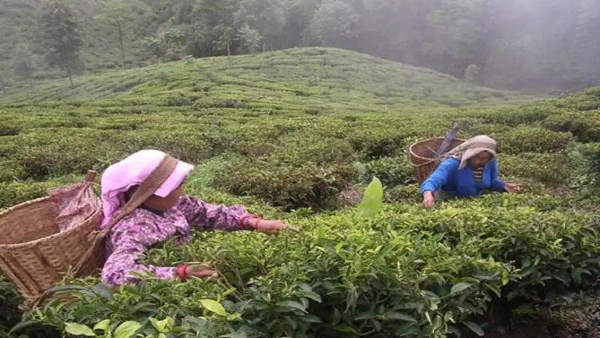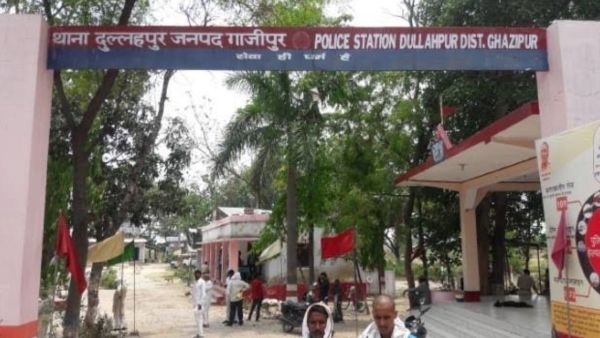Amid ongoing controversy involving prasad, the Akhil Bharatiya Akhara Parishad on Tuesday said mishri (sugar crystals), cardamom seeds and dry fruits offered traditionally to the Hindu deities as 'bhog' should be distributed among devotees as prasad at temples instead of prepared delicacies such as laddu to prevent adulteration. The statement by the seers' body comes amid the outrage over alleged adulteration of the laddu prasad offered to devotees in in Andhra Pradesh's Tirupati Balaji Temple.
This system of prasad should be operational in all temples across the country until the government and the management of temples guarantee the purity of ghee used to prepare prasad, said Mahant Ravindra Puri, president of the Akhil Bharatiya Akhara Parishad, an important body of seers.
"Items like rock sugar, cardamom and dry fruits are traditionally offered as Bhog to Hindu deities. Their distribution as prasad will leave no room for adulteration," he said.
Expressing his disgust at the adulteration of 'prasadam' at the Tirupati Balaji Temple, Puri said it had hurt the sentiments of Hindus all over the world.
He suggested that Hindus feeling guilty about having eaten adulterated prasad unknowingly at Tirupati Balaji can purify their system by consuming Ganga jal or Gomutra (cow urine).
Hindus guilty after eating adulterated prasad unknowingly can purify their system by consuming Ganga jal or cow urine.
Recently, consumer affairs secretary Nidhi Khare on Monday said her department will consider additional measures to monitor ghee quality in the market only after receiving the Food Safety and Standards Authority of India (FSSAI) report. She emphasised that food safety falls under FSSAI’s purview, adding, “We should all wait for the FSSAI to take action.”
Responding to queries about potential pre-festive season checks on ghee quality, Khare said, “We will take more action, if required, after the FSSAI report and provided there are consumer complaints on the National Consumer Helpline (NCH).” The secretary clarified that food-related complaints received on NCH are typically forwarded to FSSAI for action.
The controversy has sparked reactions across states. Karnataka has mandated testing of temple prasadam and specified the use of only Nandini ghee for the preparation. In Uttar Pradesh, the Food Safety and Drug Administration (FSDA) has collected 13 samples of ‘prasadam’ from prominent temples in Mathura for testing.
In Lucknow, Mankameshwar temple has banned offerings of ‘prasad’ bought by devotees from outside and said they can offer homemade ‘prasad’ or fruits. The temple’s Mahant Devya Giri on Monday said the distribution of “adulterated” ‘prasad’ in the Tirupati temple was an “unpardonable crime”. PTI
This system of prasad should be operational in all temples across the country until the government and the management of temples guarantee the purity of ghee used to prepare prasad, said Mahant Ravindra Puri, president of the Akhil Bharatiya Akhara Parishad, an important body of seers.
"Items like rock sugar, cardamom and dry fruits are traditionally offered as Bhog to Hindu deities. Their distribution as prasad will leave no room for adulteration," he said.
Expressing his disgust at the adulteration of 'prasadam' at the Tirupati Balaji Temple, Puri said it had hurt the sentiments of Hindus all over the world.
He suggested that Hindus feeling guilty about having eaten adulterated prasad unknowingly at Tirupati Balaji can purify their system by consuming Ganga jal or Gomutra (cow urine).
Hindus guilty after eating adulterated prasad unknowingly can purify their system by consuming Ganga jal or cow urine.
Recently, consumer affairs secretary Nidhi Khare on Monday said her department will consider additional measures to monitor ghee quality in the market only after receiving the Food Safety and Standards Authority of India (FSSAI) report. She emphasised that food safety falls under FSSAI’s purview, adding, “We should all wait for the FSSAI to take action.”
Responding to queries about potential pre-festive season checks on ghee quality, Khare said, “We will take more action, if required, after the FSSAI report and provided there are consumer complaints on the National Consumer Helpline (NCH).” The secretary clarified that food-related complaints received on NCH are typically forwarded to FSSAI for action.
The controversy has sparked reactions across states. Karnataka has mandated testing of temple prasadam and specified the use of only Nandini ghee for the preparation. In Uttar Pradesh, the Food Safety and Drug Administration (FSDA) has collected 13 samples of ‘prasadam’ from prominent temples in Mathura for testing.
In Lucknow, Mankameshwar temple has banned offerings of ‘prasad’ bought by devotees from outside and said they can offer homemade ‘prasad’ or fruits. The temple’s Mahant Devya Giri on Monday said the distribution of “adulterated” ‘prasad’ in the Tirupati temple was an “unpardonable crime”. PTI








